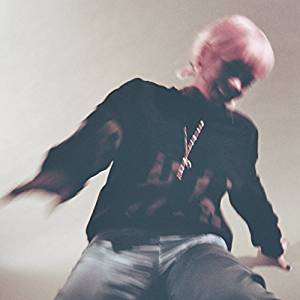Lily Allen will always be associated with her directness. It’s on display when she drew from personal experiences in her music, as well as her outspoken nature during interviews and on social media. It was part of the appeal to the people who adored her, but it also meant any mistakes she made were lived out publicly, fueling her detractors.
After two huge albums, Allen went on hiatus and she started a family. When she returned at the end of 2013, the pop world had changed. Sheezus wasn’t the complete disaster its legacy would suggest, but it’s a flawed record that screamed identity crisis. Her messages were mixed (especially on the misguided, ‘Hard Out Here’) and it found her aimlessly chasing current musical trends. Allen wasn’t happy with the results. She was confused after motherhood brought out her deepest insecurities, and she didn’t know what kind of pop star she should be. For album number four, she’s much more in control.
Allen is only 32, but she’s experienced a lot in her life, especially in the last few turbulent years: self-medication, divorce, depression, a stalker. On, ‘No Shame’ she shares some of those experiences with no filter. There’s a sense of clarity and that she has nothing to lose on the downtempo opener, ‘Come On Then’. During understated synths and a chilled trap beat, Allen states, “I feel like I’m under attack all of the time”. It may seem obvious when she reminds listeners to not believe everything they read, but it feels like an important one for her to express. No Shame is Allen setting her sights on telling us her truth. It’s immediately more effective than the clumsy social commentary on Sheezus.
Considering Allen’s revelations about her personal life, it’s surprising to hear her sound so relaxed. On the autobiographical, ‘Trigger Bang’ she refers to her substance abuse issues, over a low-key laidback rhythm. Ultimately Allen recognises that she, “can’t hang with the cool gang” and sings about moving forward. Despite the maturity, self-reflection and sadness, there are still sprinklings of her humour when she sings, “I never got home for Neighbours”.
‘Lost My Mind’ has a breezy melody which is offset by the dark lyrics, “when I couldn’t breathe, couldn’t sleep and you say it served me right, maybe I’ve lost my mind”. On the nakedly beautiful ballad, ‘Three’, Allen sings from her daughter’s point of view. with heart-wrenching results, “Please don’t go, stay here with me. It’s not my fault, I’m only three”. Her voice channels the fragility that made some of her previous highlights (‘Littlest Things’, ‘I Could Say’ ‘The Fear’) so emotionally rewarding.
Allen gives a powerful vocal on the 70s soft rock ballad inspired, ‘Family Man’. She reveals the pain of the breakdown of her marriage, singing “you’re better off without me, I’m more than selfish”. It’s a standout along with the soul-baring career high, ‘Everything To Feel Something’. She painfully admits, “I don’t know why I do it to myself, I give my worth to someone else”. The fluttering of backing vocals and tender R&B influence is reminiscent of the incredible Solange.
‘Higher’ is delightfully weightless with a barely existing beat and gentle guitar. It has the intricate cool of The XX or early Jessie Ware (someone who also struggled to find the right direction in music after becoming a mother). The jazz tinged, ‘Apples’ is another song about her divorce and features a minimal plucked guitar for backing. These songs unfold beautifully and are thankfully far from the clumsy try-hard singles from Sheezus.
The only songs that don’t pack as much of a punch are some of the upbeat songs that musically call back to her playful earlier works. ‘My One’, ‘Waste’ and ‘Your Choice’ are fine songs, they just appear lightweight and less convincing compared to the rest of the material — where the music compliments the raw themes.
No Shame positions Allen as someone who is still healing from a rough few years and it reinforces her candid nature. She knows what people think of her and wants to change those perceptions. Her emotions are at the surface of this record, which has made Allen regain her identity. She’s successfully proved a point after the failure of Sheezus, striking a balance where everything feels totally natural. It’s unlikely that No Shame will repeat her earlier commercial success, but it’s her most satisfying and focused release.




